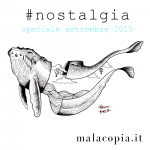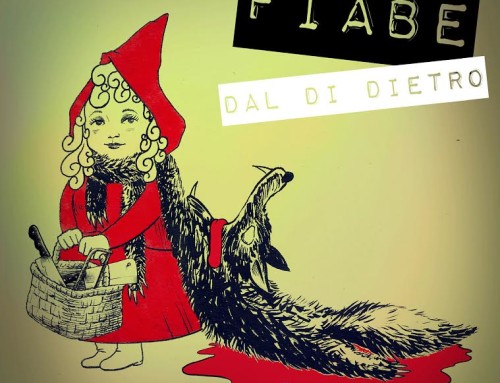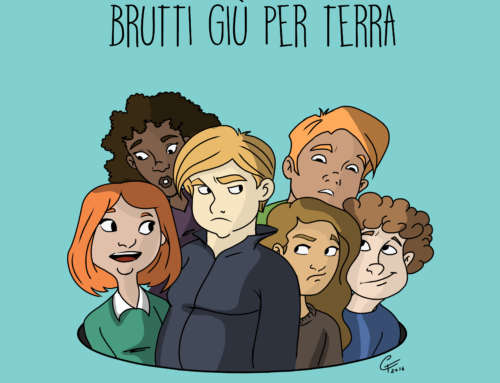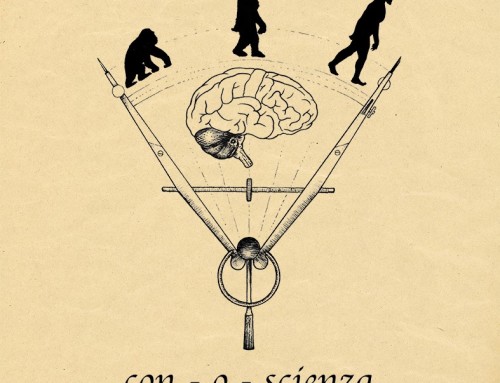Dal nostro corrispondente
Quello della nostalgia è un argomento che non mette insieme i brits e gli italiani.
In apparenza, gli inglesi sembrano i più nostalgici, ma non è propriamente così. Londra è il cuore urbano dell’Inghilterra, costruito sulla connivenza di persone diverse di culture differenti, che stanno tutto il giorno in giro in una città che è sempre indaffarata a fare affari o commerciare qualcosa o in qualche evento pubblico di rilevanza sociale.
Tutto quanto potrebbe indurre a pensare che il cambiamento incessante comporti la perdita di valori, tradizioni ed identità. Ebbene, non è andata proprio in questo modo. Secoli di questo stile di vita hanno fatto la fortuna di questa città, le cui tradizioni e le usanze non hanno sofferto il processo della globalizzazione poiché, dopo i tempi dell’antica Roma, è da qui che essa è partita.
Il Regno Unito non si riduce a Londra o alle più grandi città. “Via dalla pazza folla”, nei villaggi e nelle cittadine più piccole la gente è ancora devota alle proprie abitudini: il pub e l’ora del tea, giusto per fare due esempi.
Beh, si potrebbe dire che “dammi un cane, un camino, un tea e sarò felice” sia ancora il loro motto. Dunque, è facile rendersi conto che gli Inglesi non hanno nulla di cui esser nostalgici: tutto ciò che sono è ancora lì, da Sua Maestà –auguri Bettina!- alla beefcake.
Che dire degli Italiani? Nel Belpaese la gente si lamenta continuamente di ciò che era e di ciò che aveva. Dopo aver dato un bel calcio nel sedere ai mercati tradizionali e al pranzo domenicale per far posto a centri commerciali spazzatura e al fast food, gli italiani non sanno più chi sono. Per dirla in breve: byebye lasagna e benvenuti hamburgher che sanno di plastica e patatine.
Paradossalmente, la nostalgia non infetta solo gli abitanti delle città. Nei piccoli centri i suv che sparano musica hiphop a palla cercano di passare in stradine fatte per un cavallo o una carrozza o massimo per una Cinquecento (a dirla tutta, avviene anche in città, dove le strade non sono così ampie da permettere a madri di famiglia sui loro macchinoni di portare i bimbi a scuola con la loro guida da stronze).
Non sono così vecchio da lamentare la perdita dei tempi d’oro come i cinquantenni, ma è vero che negli ultimi venti anni l’Italia è cambiata e la gente si é ritrovata in modo scioccante in un posto totalmente diverso, dove i vicini buoni e generosi , le tradizioni che hanno dato luogo all’idea di famiglia a cui erano abituati sono diventate all’antica come le canzoni magnifiche di Nilla Pizzi.
Quindi è tutto chiaro: i nostalgici italiani battono gli inglesi 1-0. Ovviamente è un’idea generale – ed ironica of course-. Anche i Brit sono nostalgici ma… di quello che incontrano nei viaggi: del cibo, del vino e del clima italiani in cima alla lista.
Succede sempre che, quando sono in Gran Bretagna e la gente viene a sapere che sono italiano, comincia con una descrizione strappalacrime di cosa ha assaporato in un piccolo ristorante da qualche parte in Italia, dove ha cenato a un tavolo in una suggestiva piazza con una chiesa medievale o un palazzo barocco. E, con occhi lucidi, queste persone ripetono in estasi il nome dei piatti e dei vini come farei io facendo l’elenco dei miei orsetti di peluche!
Tutto ciò mi fa tornare in mente zia Angeline,- una delle persone più bizzarre che abbia mai conosciuto- che viveva a Bloomsbury in una casa vittoriana un po’ inquietante, come lei del resto.
Dopo che mamma si fu trasferita in Italia, i miei nonni presero l’abitudine di passare circa metà anno a Trani e tutti i loro parenti venivano a far visita per qualche tempo. Quando zia Angeline arrivò per la prima volta, ebbe un vero colpo di fulmine per la mozzarella e la ricotta e, quando se ne tornò a casa, passò l’intero anno seguente a sognare tutta la ricotta che si era mangiata. Nelle telefonate settimanali che faceva a nonna, prese l’abitudine di chiederle se avesse assaggiato qualche nuova ricetta con la ricotta, se il prezzo fosse aumentato etc… insomma, ne aveva una forte nostalgia come se fosse stato un amante estivo.
Mamma mi ha raccontato che l’estate seguente zia Angeline ritornò e chiese di poter visitare una fattoria, dove si fece spiegare come fare la ricotta a casa. “Era davvero felice, credo non ci sia mai stato qualcuno più entusiasta di lei per la ricotta” disse mamma, quando mi raccontò questa storia.
Sembra che quando zia Angeline ritornò nella sua “bella” casa a Bloomsbury, si equipaggiò di tutti gli utensili necessari e cominciò a visitare le fattorie nei dintorni di Londra con l’intento di trovare il latte più adatto ai suoi scopi ed il caglio, che fa la magia di trasformare il latte in cottage cheese –per dirla all’inglese.
“Insomma -ha detto mamma- da quel momento cominciò a raccontarci nelle sue telefonate che era la persona più felice del mondo perché non doveva più sognarsela la ricotta delle Murge visto che poteva farsela da sola a casa e che le sue amiche si erano unite a lei nel suo hobby caseario. Era diventata la vera Regina dei Latticini di Londra!”
“E dunque –risposi a mamma- la sua nostalgia la aveva spinta e motivata a farsi questo cibo da sola. Non ci sono più donne così” (ovviamente scherzavo).
“Si, è così. Fortunatamente le signore possono comprarsi la ricotta senza fatica a Londra oggi. Non c’è bisogno di trasformare le loro cucine in laboratori o di morirne dal desiderio. Per piacere, promettimi che non lo scriverai nella tua rubrica su Malacopia!”
“Prometto di non farlo mamma!” le ho risposto. Ovviamente mentivo.
From our correspondent
Nostalgia is a theme that puts the Brits and the Italians in disagreement.
Apparently, the English people sound the most nostalgic one, but it isn’s so. London is the big urban heart of England built on the fusion of different people and of their different cultures, out and about all day long in a city that is always busy in trades and business and social public events. This all would lead you to think that the reckless changing implies the lost of values, traditions and identity. Well, it is not that true. Centuries of this lifestyle have made the fortune of this city, whose traditions and uses do not undergoe the process of globalization because after the ancient Rome times, it’s here where it sprouted.
The United Kingdom is not only London or the main cities. “Far from the madding crowd” in the villages and small towns people is still devoted to their habits: the teatime and the pub, just to make two examples. Well we could say that “give me a dog, a fireplace, a tea and I will be happy” is still the motto. So you can easily see that they have nothing to be nostalgic about: everything they are is still there, from Her Majesty- congrats Lilibeth!- to the beefcake.
What about the Italians? In Italy people is always complaining about what they were and what they had. After kicking in the ass the traditional markets and the Sunday lunch to make place to trash-shopping centres and to the fast food, they do not know who they are. In few words: byebye lasagna and welcome plastic-taste hamburger and fries.
Ironically it does not only affect the cities’ inhabitants; in the small areas suv cars pumping up hiphop music very loud try to make their way in those narrow streets that were made for a horse or a coach or…a Cinquecento (well, it also happens in the big cities were streets are not that big to allow family-mothers to take their children to school in huge cars with their bitch-drive).
I am not that old to complain about the lost of a Golden Times as fifty-yars-old people can do, but it’s true that in the last twenty years Italy has changed, and pleople have stunningly found themselves in a completely different place where generous and meek neighbours, the traditions that had made up the idea of family they were used to, had been turning old fashioned as the glorious music of Nilla Pizzi.
Well, you see: the nostalgic Italian win the English 1-0.
Of course it is a general –and pretty ironic- idea. The English are also nostalgic but…for what they find in their trips… Italian food, wines and weather in top of the list.
It always happens that when I am in the UK and people come to know that I am from Italy, they start with a moving description about what they tasted once in that small restaurant somewhere in Italy, where they had dinner at a table in a suggestive square with a medieval church or a baroque palace. And with wet eyes, they repeat in extasy the name of dishes and wines like I would do listing my teddybears…
This all reminds me of aunt Angeline -one of the most bizarre person I have ever known- who lived in Bloomsbury in a Victorian house that was a little disquieting, just like her dweller. After mum had moved to Italy, my grandparents used to spend about six months per year in Trani and all their relatives came to visit for a while. When aunt Angeline visited, she had a crush on ricotta and mozzarella, and when she returned home, she spent one year dreaming about all that ricotta she had been eating and that in her weekly phonecalls to my grandmother, she got the habit to ask her if she had tasted a new recipe with ricotta, and if its price had rised…a real nostalgic about it as ricotta had been her summer lover.
Mum told me that the following year aunt Angeline returned in summer and she asked to visit a dairy farm, where she asked to know how to make ricotta at home. “She was very happy, I think there has never been somebody more enthusiastic than her about the cottage cheese”, mum said when she told me this story.
As I have come to know, when she returned in her house in Bloomsbury, she equipped herself with all the necessary utensils and started to visit the farms in the outskirts of London in order to find the most suitable milk and rennet to make the magic that turns milk into cottage cheese.
“Well – mum said- from that moment she started to say in her calls that she was the happiest person in the world because she shouldn’t dream anymore about our ricotta from the Murge hills as she could make it herself at home and that her friends joined her in her dairy hobby…she had turned into the real Dairy Queen of London!”
“I see –I replied mum- nostalgia turned into a motivating pulsion that took her to make food on her own. Women like her have disappeared.”(I was ironic of course).
“Yes it is, fortunately ladies can buy ricotta easily in London today, no need to turn their kitchen into a workshop or die after it.
Please, promise me you won’t write it in your column on Malacopia!”
“I promise I won’t mum!” I replied. Of course I was telling her a lie.
Marcantonio Posa per malacopia











Scrivi un commento